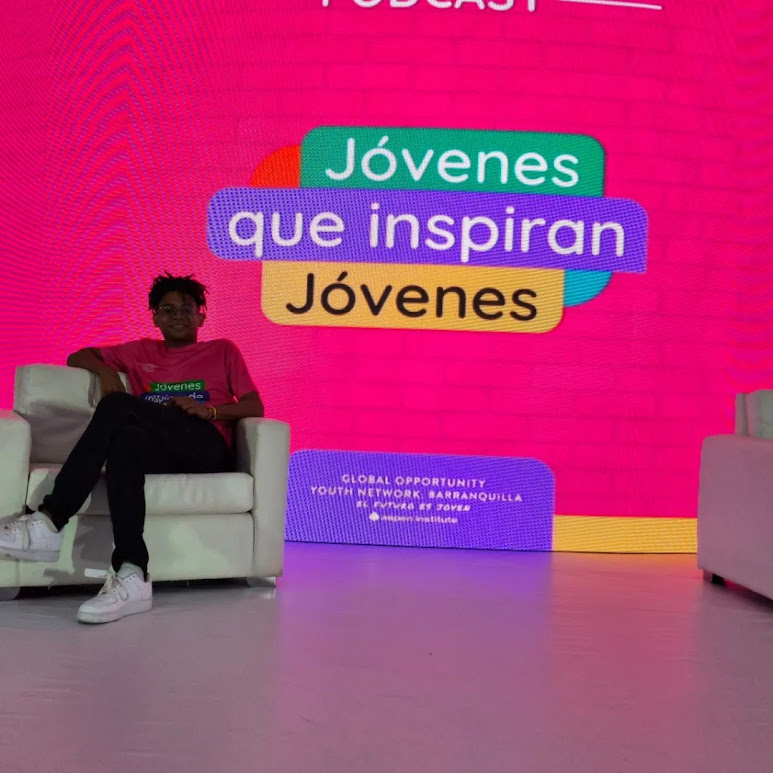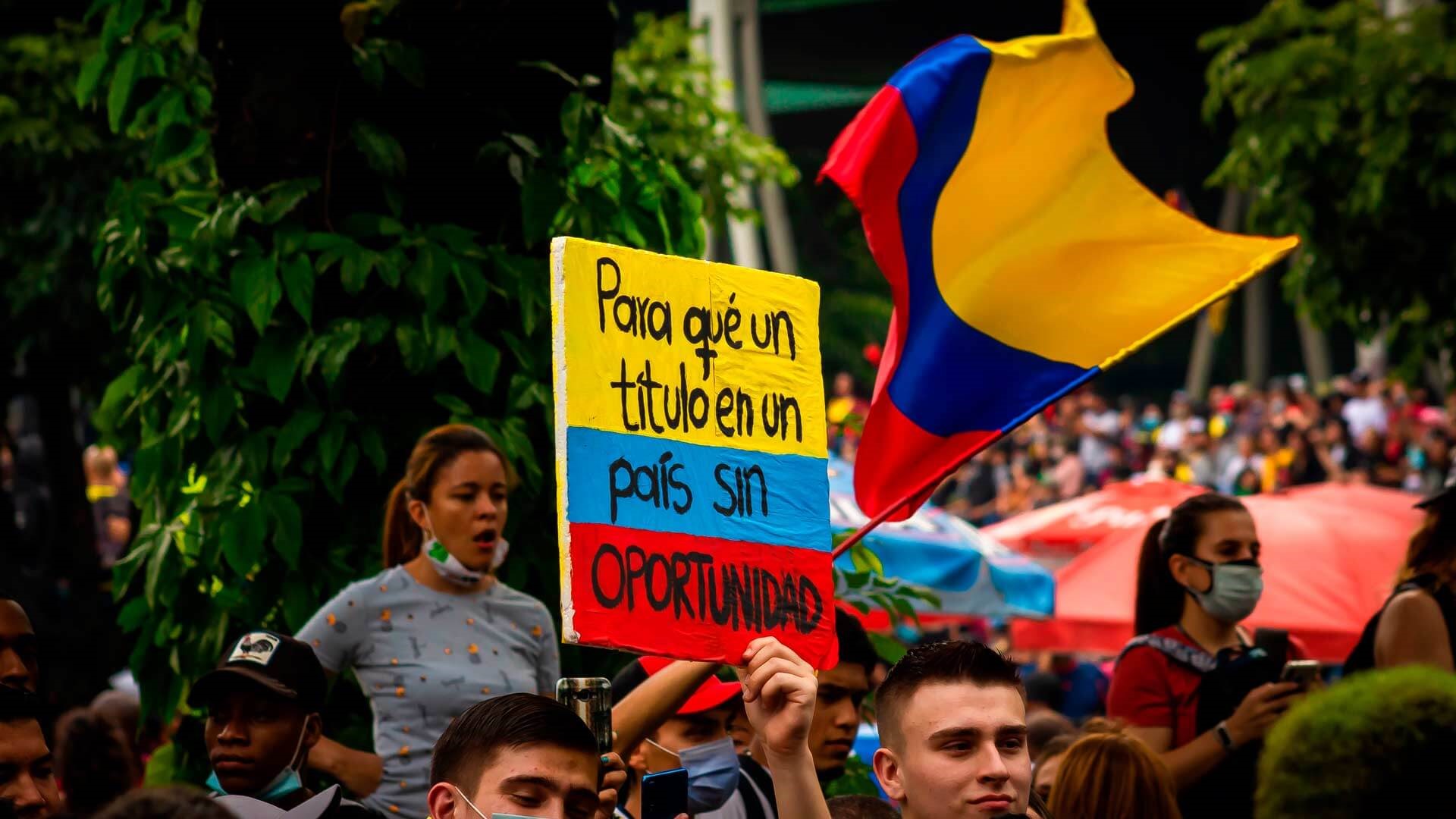By Randy Marquez
GOYN Alumni | Writer and Collective Storyteller
Nobody gave us the word. We ripped it out.
Being young in Colombia and wanting to participate isn't a luxury; it's a political act. It's choosing to be present in a country that has historically denied our bodies, our ideas, and our ways of building a future. Participating, then, isn't about filling out a form or raising your hand. It's about opening cracks where no doors were left for us.
On street corners, in patchwork patches, on digital platforms, we youth have begun to rethink what it means to impact reality. Because youth participation no longer fits into traditional molds. It's no longer just about voting or attending a polling station. Today it's about narrating, protesting, creating, causing discomfort, misunderstanding, collectively taking care of ourselves, and raising our voices in everyday life.
“It's not about sitting at the table, but about changing the menu and demanding that we not be served the same old thing.”
Participating is not always being there; it is often resisting.
Young people in Colombia no longer feel represented by the institutions that should listen to them. The data speak for itself, and we shout it in the streets. Youth Councils with no real impact, participatory processes where everything is already decided before we are even consulted, and scenarios that include us only to meet diversity quotas. That's not participation, it's tokenism.
Participating from the periphery is not the same as participating from comfort. Those who experience inequality, violence, and abandonment don't have the same tools or the same time to occupy spaces that are often designed without understanding their realities. That's why, in many neighborhoods, participating means organizing a community soup kitchen. It means founding a collective of young mothers. It means creating murals with memory. It means speaking to the world through a podcast recorded on a cell phone.
From ballot boxes to algorithms: digital territories as new public squares
Today, young people are also participating online. Not as posing "political influencers," but as uncomfortable storytellers who hack the algorithm with stories that hurt, heal, and mobilize. On Instagram, TikTok, and Spotify, young people are documenting what the media ignores: disappearances, structural racism, police violence, trans discrimination, state abandonment. Every story told becomes a form of resistance. Every recorded word is a commitment to not being erased. To narrate is to participate. And whoever speaks also takes power.
Participation is not homogeneous: who has the right to do so?
Who can actually participate? And who is systematically excluded? In Colombia, participation continues to be shaped by class, race, gender, geography, and access to technology. Being a young white man in a capital city with internet access is not the same as being a young Black woman on a sidewalk with no internet connection, or a trans person in a stigmatized neighborhood.
Still, we participate. With what we have. As best we can. And from places we're not expected to. Because if this generation has demonstrated anything, it's that it's not willing to wait for permission to make its voice heard.
Youth participation today is multiple, uncomfortable, irreverent
It's not homogeneous. It's not vertical. It doesn't respond to parties or traditional agendas. It's critical. It's creative. And above all, it's collective. Youth are organizing around issues, not political affiliations: education, peace, climate, art, memory, autonomy.
Today, participation doesn't always involve a tie. Sometimes it comes in the form of a song, a performance, a documentary, or graffiti.
And that also bothers those who would like us to be obedient, silent, and grateful for a small space where we can't change anything.
To participate is to dispute the present, not just to imagine the future.
This article isn't a denunciation, it's an affirmation: we're participating, but by our own rules. We're not interested in applause or empty recognition. We want impact, transformation, dignity. And that can't be begged for; it's built in community.
Youth participation in Colombia isn't a goal; it's a battlefield. And although it may seem like we're not present in official spaces, the truth is that we're building our own: more horizontal, more real, more our own.
What is not sold
We need to recover the democratic and moral values that have been replaced by the vileness and greed of a market where everything has a price, where everything is bought and where everything is sold.
It is urgent to say it: there are things that are not negotiable.
And among them are dignity, critical awareness, memory, and the right to real participation.
As Joan Manuel Serrat said:
“Preserving the word, beauty, justice and freedom is our duty“
Closing
Youth participation isn't just a program line. It's a vital act.
And in this country that insists on telling us we have no future, every form of participation is a form of collective existence.
Because participating in Colombia isn't a privilege. It's a form of resistance. And also a form of love.






